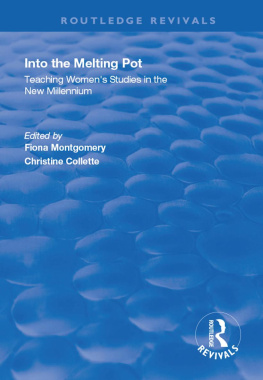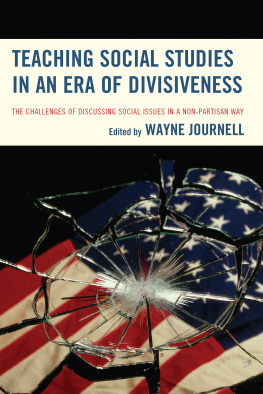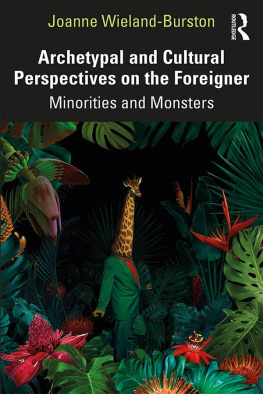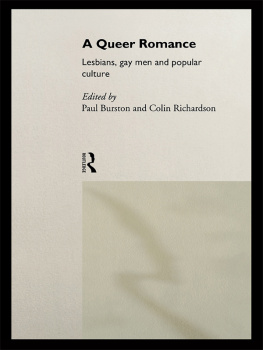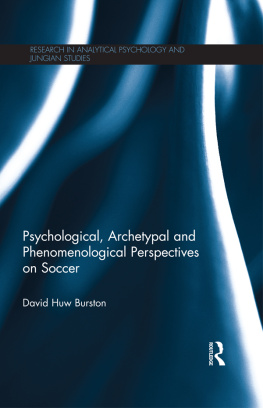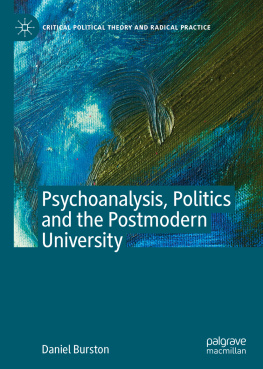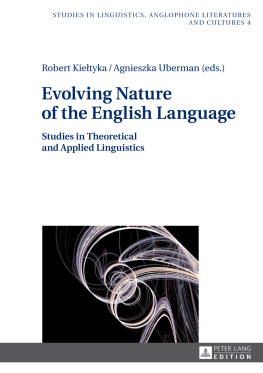ROUTLEDGE LIBRARY EDITIONS: HISTORIOGRAPHY
Volume 8
STUDIES IN THE NATURE AND TEACHING OF HISTORY
STUDIES IN THE NATURE AND TEACHING OF HISTORY
Edited by
W. H. BURSTON AND D. THOMPSON
First published in 1967 by Routledge and Kegan Paul Ltd
This edition first published in 2016
by Routledge
2 Park Square, Milton Park, Abingdon, Oxon OX14 4RN
and by Routledge
711 Third Avenue, New York, NY 10017
Routledge is an imprint of the Taylor & Francis Group, an informa business
1967 W. H. Burston and D. Thompson
All rights reserved. No part of this book may be reprinted or reproduced or utilised in any form or by any electronic, mechanical, or other means, now known or hereafter invented, including photocopying and recording, or in any information storage or retrieval system, without permission in writing from the publishers.
Trademark notice: Product or corporate names may be trademarks or registered trademarks, and are used only for identification and explanation without intent to infringe.
British Library Cataloguing in Publication Data
A catalogue record for this book is available from the British Library
ISBN: 978-1-138-99958-9 (Set)
ISBN: 978-1-315-63745-7 (Set) (ebk)
ISBN: 978-1-138-19152-5 (Volume 8) (hbk)
ISBN: 978-1-315-64045-7 (Volume 8) (ebk)
Publishers Note
The publisher has gone to great lengths to ensure the quality of this reprint but points out that some imperfections in the original copies may be apparent.
Disclaimer
The publisher has made every effort to trace copyright holders and would welcome correspondence from those they have been unable to trace.
STUDIES IN THE NATURE AND TEACHING OF HISTORY
edited by
W. H. BURSTON
and
D. THOMPSON
First published 1967
by Routledge and Kegan Paul Ltd
Broadway House, 6874 Carter Lane
London, E.C.4
Printed in Great Britain
by Northumberland Press Ltd, Gateshead
W. H. Burston and D. Thompson
No part of this book may be reproduced
in any form without permission from
the publisher, except for the quotation of
brief passages in criticism
CONTENTS
S. W. F. Holloway
L. R. Perry
W. H. Burston
W. H. Walsh
D. Thompson
W. H. Burston
Ann Low-Beer
E. A. Peel
E. A. Peel
THIS book has its origin in three courses of lectures for practising teachers given at the London Institute of Education, which attracted considerable interest and support. In the last of these courses, distinguished exponents considered various problems in philosophy of history and they were followed, at appropriate stages, by an examination of their implications for the teacher of history. In addition, Professor Peel considered some of the psychological questions which such views might contain for the effective learning of history. These lectures in modified form are the core of this book: certain additional chapters, relevant to the theme, have been added.
The premise on which the whole argument rests is that, when we teach history in schools, we are concerned not with a set of facts, but with introducing our pupils to a particular way of thinking. It follows that it is necessary for the history teacher to be as clear as possible as to what historical thinking is, and what it implies in syllabus and method appropriate to teaching history in a school. Hence the chapters on different philosophical theories of explanation in history, with corresponding analyses as to what this might imply for the teacher.
It is also possible to approach matters from the other end, and to examine different proposals for the history syllabus and to ask what view of the nature of history they imply. Two new proposals currently advocated for secondary schools are that social science should replace or at least co-exist with history in schools and that contemporary history is more appropriate for the average child: both are defended as being more immediately and obviously relevant than traditional history. The problems involved, and especially the view of the nature of history implied, are discussed in the chapters on History and Sociology and Contemporary History. Finally we have a chapter on the problems of value-judgments in history and history-teaching.
When all has been said about the nature of historical thinking we have to ask how the psychologist views the problems: how, and by what stages and at what ages the pupil can acquire not merely the power of reasoning generally, but the power of thinking historically. The two chapters in this new field of psychological research cover such problems as the childs sense of time and sequence, his development through early adolescence from a largely descriptive way of thought to explanation, of the kind discussed elsewhere in this volume. Other problems which are considered are concept formation, the uses and dangers of analogy and the important question of imagination and inference in child and adolescent thinking. These chapters are necessarily of a different kind from others in the book but they are a logical sequence to the argument on which the book is based. If the teacher must concern himself to know precisely how he wants his pupil to think in history lessons, then he must be no less concerned with the psychologists view of just how, in fact, the child acquires these powers of thought.
It is hoped that this volume will be a contribution both to the academic debate on the nature of history, and provoke useful reflections on the problem of teaching it. Each contributor has written independently of the others and it follows that the value of the book lies not in the advocacy of a coherent theme or doctrine, but rather in the questions which are raised.
We would like to record our gratitude to Miss Christine Webb for her help in preparing the manuscript.
W. H. BURSTON
D. THOMPSON
November 1966
S. W. F. Holloway
IT was Leopold von Ranke, together with his contemporaries and successors of the Prussian Historical School, who laid the foundation of modern academic history. If there is meaning in history it can only be discovered, said Ranke, by a patient and detailed examination of the facts by men trained in the use of objective methods of historical scholarship. To be objective, it is necessary that only what the documents reveal must have actually happened should be reported. The strict presentation of the facts is the supreme law of historiography, declared Ranke. In 1859 the new









